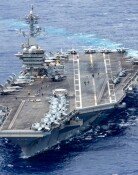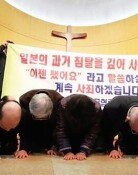Ex-Union Leaders Mea Culpa
Kwon Yong-mok, the first secretary-general of the Korea Confederation of Trade Unions, died Feb. 13 last year just a day after finishing his book, Shocking Report on the Korea Confederation of Trade Unions. He also served as the union leader at Hyundai Engine, the predecessor of Hyundai Heavy Industries. In the book, he wrote about how union leaders, including one who later became a lawmaker of the main opposition Democratic Party, embezzled and lost union money in stock investment and how former and current union leaders sold jobs and used the money to travel overseas and buy real estate. Kwon also described how union strikes were decided in an irrational manner. His book was a mea culpa of a former union leader on the brink of death.
After Ssangyong Motor was put under court receivership in early February last year, its union went on strike, demanding that management guarantee job security. At a time when the companys plan to cut 2,646 workers, or 37 percent of its workforce, was considered not strong enough, the unions no layoff demand was simply unrealistic. Though labor-management cooperation in restructuring could not ensure the carmakers survival, the militant unions illegal strike and intervention by the confederation and other outside groups put the company in deeper trouble. It was self-destructive. The Ssangyong Motor union did not yield even an inch despite seeing the collapse of the worlds top automaker General Motors.
The prolonged strike cut a deep wound. The 77-day walkout cost the company more than 300 billion won (258 million U.S. dollars) in lost production. Making the situation worse was the blow to Ssangyong Motors corporate image and consumer confidence in the company. Innocent employees of Ssangyong Motors parts suppliers were laid off and the economy of Pyeongtaek, Gyeonggi Province, where Ssangyong Motor had its main production plant, staggered. Around the time the Ssangyong Motor union went on strike, GMs union contributed to the U.S. carmakers normalization by accepting job cuts. GM later allowed part of the laid-off workers to return to work.
Kim Kyu-han, the leader of the Ssangyong Motor union who was deputy chief at the time of the strike, recently sent a letter to President Lee Myung-bak. The long-term illegal strike caused by organized intervention by outside forces ran counter to Koreas advancement and dealt a serious blow to Koreas national brand image, Kim wrote in the letter. He also pledged to put his job as union leader on the line to help Ssangyong grow into an exemplary company under win-win labor relations. In addition, he asked the president to provide financial support for the cash-strapped automaker. Could other members of the Ssangyong union leadership still on strike be thinking about their leaders self-reflection? One belated mea culpa is plenty.
Editorial Writer Park Yeong-kyun (parkyk@donga.com)







